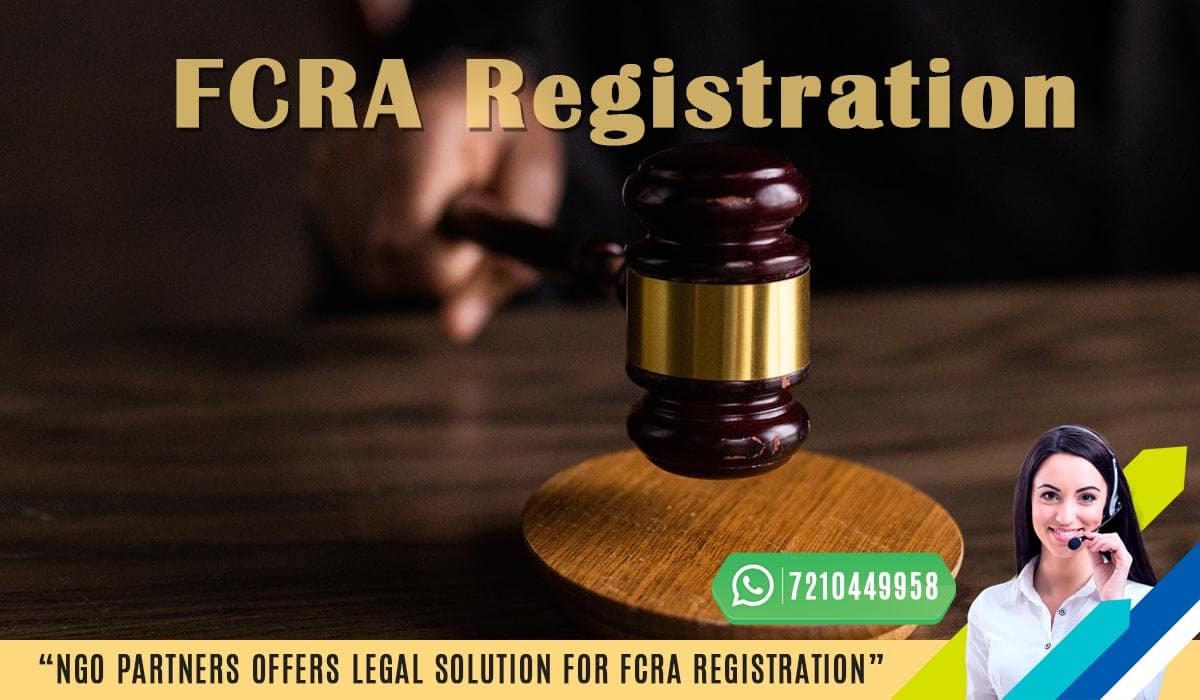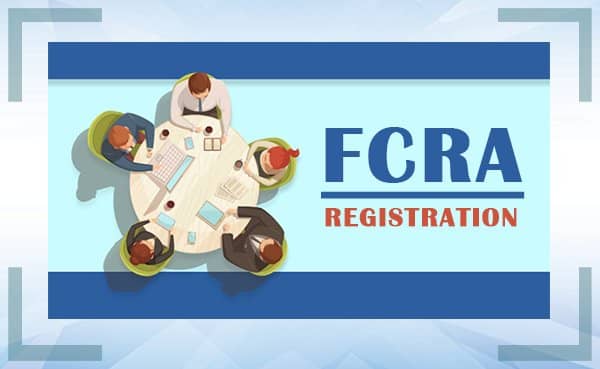FCRA (Foreign Contribution Regulation Act) registration is a legal requirement in India by the Ministry of Home Affairs for organizations seeking to receive foreign contributions. It ensures transparency and accountability in the utilization of funds from foreign sources. The registration process involves detailed documentation to verify the legitimacy of the organization and its activities.
Obtaining FCRA registration is crucial for NGOs and other entities engaging in social, economic, educational, or cultural activities with foreign support. This article explores the significance of FCRA registration, its application process, and the benefits it brings to organizations involved in charitable and social work.

Eligibility Criteria for obtaining FCRA Registration
To qualify for FCRA registration, organizations in India must meet specific eligibility criteria. The applicant entity should have been in existence for at least three years and engaged in genuine activities related to social, economic, educational, cultural, or religious spheres. It must have a proven track record of functioning in its chosen field. The key office-bearers and members should not have been convicted under certain laws, and the organization should not have been blacklisted or denied FCRA registration previously. Meeting these criteria is vital for obtaining FCRA registration, ensuring that only legitimate and trustworthy entities receive foreign contributions for their charitable endeavors.
The starting points of public NGOs date back to old times. The historical backdrop of worldwide NGOs traces all the way back to somewhere around 1839. Rotating, later Revolving Worldwide, was established in 1905. It is assessed that by 1914, 1083 NGOs had been laid out. NGO runs entirely on funds. That’s why we are started FCRA registration service for ngo.
Benefits of FCRA registration
FCRA registration offers numerous benefits to organizations in India:
- Legitimacy and Trust: FCRA registration establishes an organization’s credibility, instilling trust among donors and stakeholders.
- Access to Foreign Funding: Registered entities can legally receive foreign contributions, expanding financial resources for social and charitable activities.
- Global Collaboration: FCRA registration facilitates international partnerships and collaborations, fostering a broader impact on societal issues.
- Enhanced Visibility: Registered organizations gain visibility on the government’s FCRA website, promoting transparency in fund utilization.
- Legal Compliance: Compliance with FCRA regulations ensures that organizations operate within legal frameworks, avoiding legal issues.
- Opportunities for Growth: FCRA-registered entities can pursue larger-scale projects, contributing to more significant societal changes.
- Financial Accountability: The registration process promotes financial accountability, ensuring that foreign funds are utilized for their intended charitable purposes.

Online FCRA Registration Process
The online FCRA registration process involves the following step-by-step procedure:
- Preparation: Gather all necessary documents, including legal registration certificates, audited financial statements, and project details.
- Visit the FCRA Portal: Access the official FCRA online portal provided by the Ministry of Home Affairs.
- New User Registration: Create a new user account on the portal by providing essential details.
- Login: Log in to the portal using the created credentials.
- Application Form Submission: Fill out the FCRA application form with accurate information about the organization’s structure, activities, and finances.
- Upload Documents: Upload scanned copies of all required documents, including legal registration certificates, audited financial statements, and project details.
- Payment of Fees: Pay the requisite application fee online through the portal.
- Application Submission: Submit the completed application form and ensure that all uploaded documents are accurate.
- Application Scrutiny: The Ministry of Home Affairs scrutinizes the application, verifying the organization’s legitimacy and adherence to FCRA regulations.
- Status Check: Periodically check the application status on the FCRA portal.
- Approval and Registration: Once approved, the organization receives FCRA registration, allowing it to legally receive foreign contributions.
Renewal Process of FCRA Registration
- Advance Preparation: Begin the renewal process six months before the expiry date of the current registration. Gather updated documents, including audited financial statements and project reports.
- Visit FCRA Portal: Access the official FCRA online portal provided by the Ministry of Home Affairs.
- Login: Log in to the portal using the existing credentials or create a new account if necessary.
- Renewal Application Form: Locate and fill out the renewal application form, providing updated information about the organization’s activities, financials, and any changes in key office-bearers.
- Upload Updated Documents: Upload scanned copies of renewed legal registration certificates, audited financial statements, and project reports.
- Payment of Renewal Fees: Pay the requisite renewal fees online through the portal.
- Application Submission: Submit the completed renewal application form along with the necessary documents.
- Application Scrutiny: The Ministry of Home Affairs scrutinizes the renewal application to verify compliance with FCRA regulations.
- Status Check: Periodically check the renewal application status on the FCRA portal.
- Renewal Approval: Upon approval, the organization receives renewed FCRA registration, extending its eligibility to legally receive foreign contributions.
Adhering to each step and ensuring accurate and updated documentation is crucial for a successful FCRA renewal process.
In conclusion, obtaining and renewing FCRA registration is a crucial step for organizations engaged in charitable activities, ensuring transparency and legality in receiving foreign contributions. At NGO Partner, we understand the significance of this process and offer seamless assistance to streamline your FCRA journey. For any queries, clarifications, or additional legal consultation needs, feel free to reach out to us. Our dedicated team is here to guide you through the intricacies of FCRA registration, providing a reliable and efficient solution for your organization’s philanthropic endeavors. Your success in making a positive impact globally is our priority. Contact us for a complimentary consultation today.
Here are some other essential documents every NGO in India should have. You can have a look at the links below:
NGOs and organizations in India engaging in charitable, social, religious, economic, or cultural activities and seeking foreign contributions require an FCRA (Foreign Contribution Regulation Act) certificate. This legal document ensures legitimacy and compliance with regulations for receiving funds from foreign sources.
For FCRA registration, essential documents include legal registration certificates, audited financial statements, project reports, and updated information about key office-bearers. Accurate documentation is crucial for compliance with FCRA regulations, ensuring the organization’s eligibility to receive foreign contributions legally.
FCRA (Foreign Contribution Regulation Act) registration is initially valid for five years. Organizations need to apply for renewal six months before the expiry date to continue legally receiving foreign contributions. Renewal is subject to compliance with FCRA regulations and updated documentation.
Yes, FCRA (Foreign Contribution Regulation Act) registration is compulsory for organizations in India intending to receive foreign contributions for charitable, social, economic, cultural, or religious activities. It ensures transparency and compliance with legal regulations in handling funds from foreign sources.

